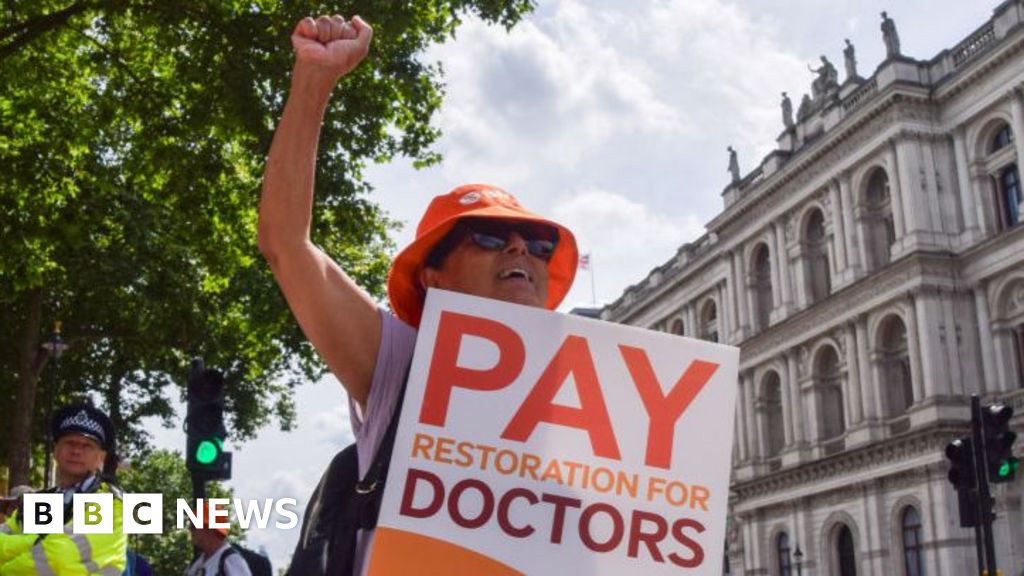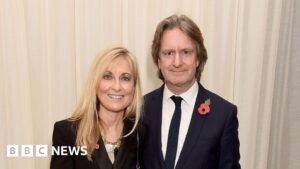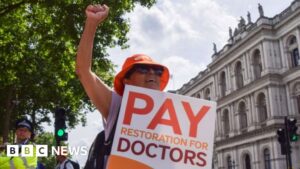Health secretary and BMA to meet in bid to avoid strikes
The meeting with Wes Streeting will take place next week, the doctors’ union confirms.


Talks between Health Secretary Wes Streeting and the British Medical Association (BMA) will take place next week in a bid to avert strike action in England’s NHS.
Resident doctors, previously known as junior doctors, announced earlier this week that they will walk out for five consecutive days from 25 July until 30 July over a dispute about pay with the government.
The government has insisted it cannot improve its offer of a 5.4% increase for this year.
In a joint statement BMA resident doctors committee co-chairs Dr Ross Nieuwoudt and Dr Melissa Ryan said they are “happy to continue discussions to find a solution”.
They said: “We are glad that the Secretary of State has taken us up on our offer and we look forward to constructive discussions, in the hope that we can make progress that would be sufficient to support suspending the planned strike.”
Resident doctors were awarded an average 5.4% pay rise for this financial year – which will go into pay packets from August – following a 22% increase over the previous two years.
They are arguing that pay in real terms is still around 20% lower than it was in 2008 and have called for the government to set out a pathway to restoring its value.
They believe that this year’s 5.4% increase doesn’t take them far enough down that path.
Health department sources have told the BBC the health secretary is sympathetic to improving working conditions for resident doctors, but he won’t budge on salaries.
After the BMA’s strike announcement, Streeting called the strike “unnecessary and unreasonable”, adding: “The NHS is hanging by a thread – why on earth are they threatening to pull it?”
He said the government was “ready and willing” to work with the BMA, but any further strike action would be a disaster for patients and push back the progress made in reducing waiting lists in England.
Announcing the strikes on Wednesday, Dr Ryan and Dr Nieuwoudt said doctors had been left with “no choice” without a “credible offer to keep us on the path to restore our pay”.
Lord Robert Winston, a professor and TV doctor who was a pioneer of IVF treatment, resigned from the BMA on Friday over the planned strikes.
In an interview with The Times, he urged against strike action and said it could damage people’s trust in the profession.
It comes as fresh polling from Ipsos, first reported by the Guardian, suggests public support for resident doctors’ industrial action has fallen from 52% to 26% since June last year, when they last went on strike.
Resident doctors took part in 11 separate strikes during 2023 and 2024.
In order to end the previous strikes last year, the incoming Labour government awarded a backdated increase worth 22% over two years.
The action in England will not affect resident doctors in Scotland, Wales or Northern Ireland, who negotiate directly with their devolved governments on pay.
Resident doctors’ basic salaries in England range from £37,000 to £70,000 a year for a 40-hour week, depending on experience, with extra payments for working nightshifts and weekends.
That does not include the latest 5.4% average pay award for this year which will start to be paid into wage packets from August.






